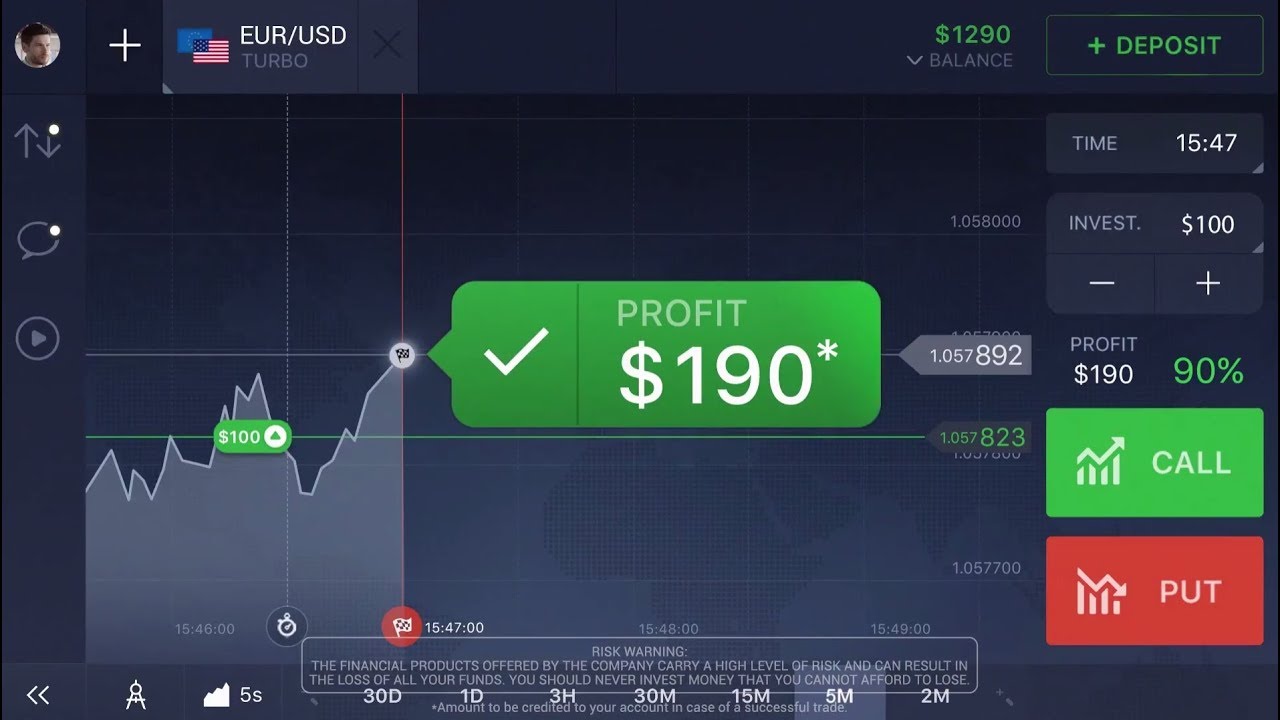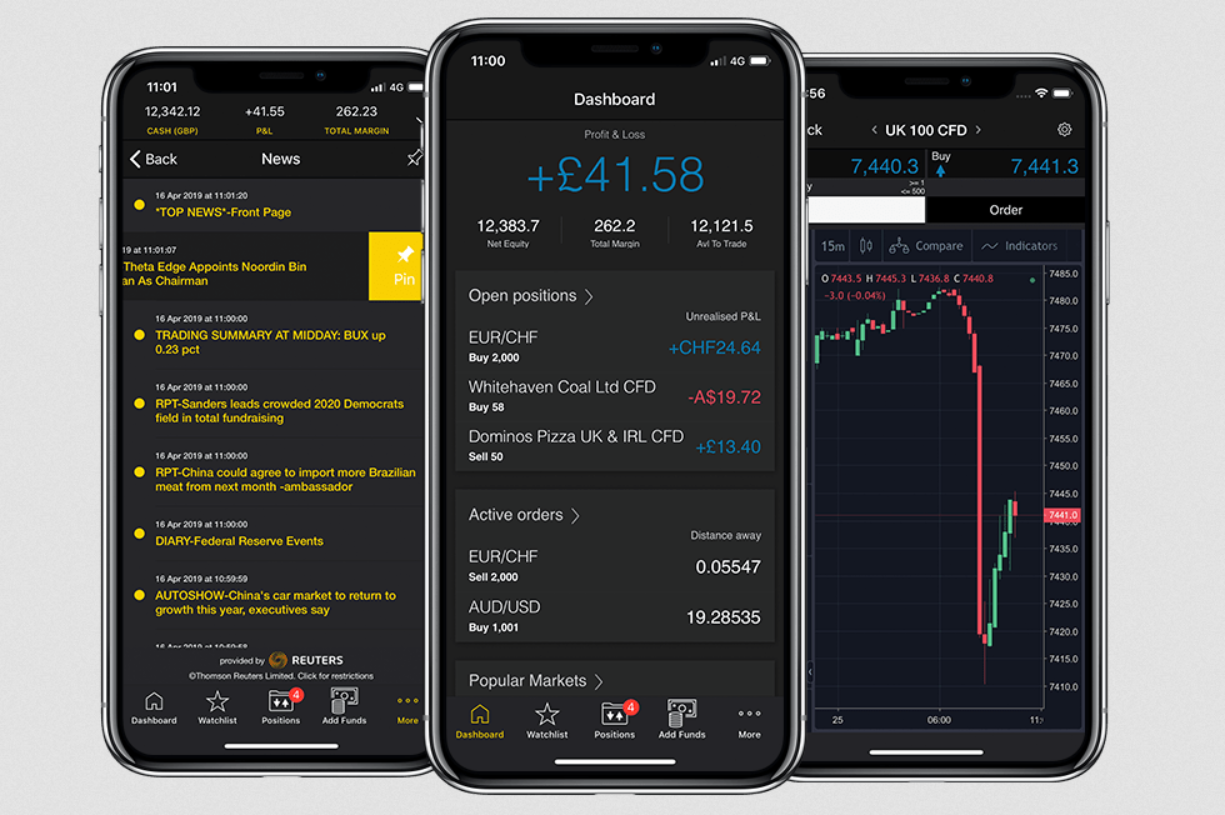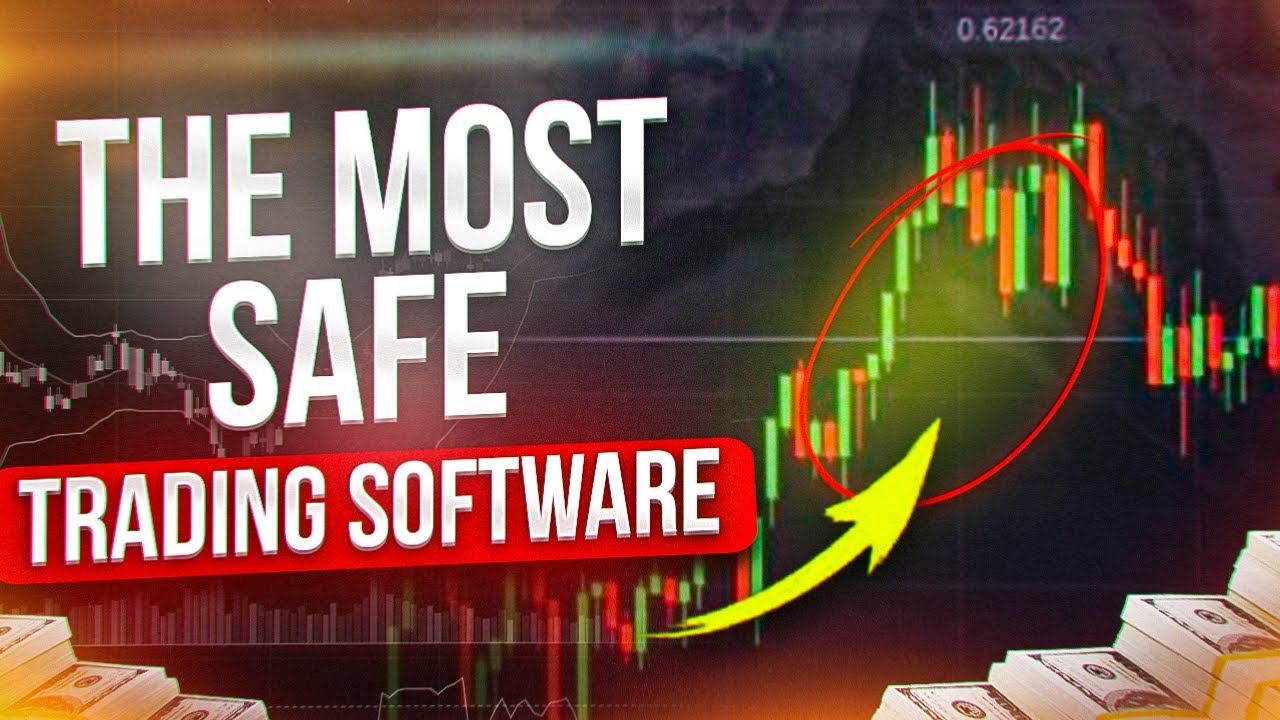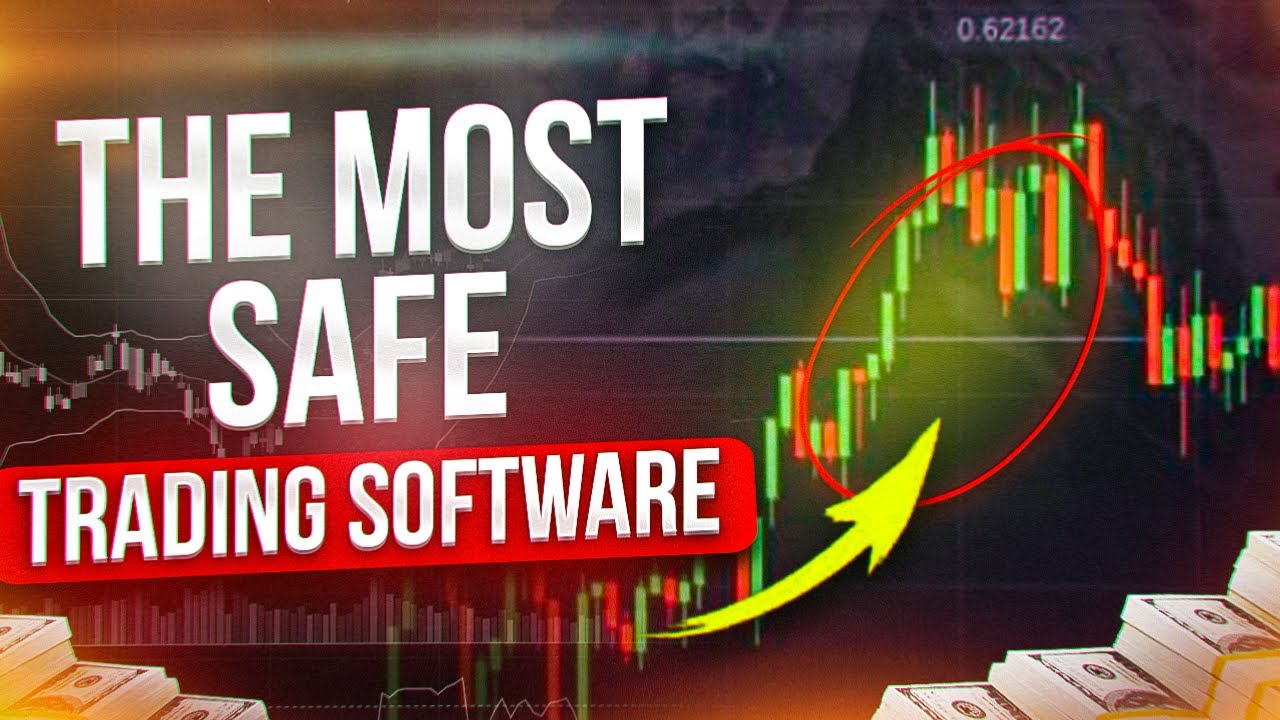What are the safest and most secure day trading apps available? This burning question plagues many a would-be day trader, dreaming of quick profits without the accompanying stomach ulcers. The digital Wild West of online trading can be a treacherous landscape, rife with potential pitfalls. This guide navigates the rocky terrain, offering insights into identifying truly secure apps, understanding the importance of robust security features, and ultimately, helping you choose an app that protects your hard-earned cash (and your sanity!).
We’ll delve into the nitty-gritty details of app security, from the seemingly mundane (but critically important) aspects like two-factor authentication, to the more complex world of data encryption and regulatory compliance. We’ll examine what makes a brokerage firm trustworthy and highlight the red flags to watch out for. Get ready to become a more informed and, dare we say,
-secure*, day trader!
Top Day Trading App Features for Security: What Are The Safest And Most Secure Day Trading Apps Available?

Day trading, with its breakneck speed and high stakes, demands a level of security that’s as robust as a diamond vault. Choosing the right app isn’t just about finding slick charts and speedy execution; it’s about protecting your hard-earned cash and sensitive information from the digital wolves lurking online. Let’s delve into the crucial security features that should be non-negotiable in your day trading app selection.
Essential Security Features
Selecting a secure day trading app requires careful consideration of several key features. These features work together to form a robust security ecosystem, protecting your investments and personal data from unauthorized access and malicious activities. Ignoring these features is like leaving your front door unlocked while going on vacation – a recipe for disaster.
Five essential security features that all reputable day trading apps should possess are:
- Two-Factor Authentication (2FA) and Multi-Factor Authentication (MFA): These methods add an extra layer of security beyond just a password. Think of it as having two separate keys to unlock your account, making it exponentially harder for intruders to gain access.
- Robust Encryption: Encryption is the digital equivalent of a secret code, scrambling your data so that even if intercepted, it’s unreadable without the decryption key. This is crucial for protecting your financial information during transactions and while it’s stored on the app’s servers.
- Regular Security Audits: Reputable apps undergo regular security audits by independent third-party firms to identify and address vulnerabilities before hackers can exploit them. Think of it as a yearly health check-up for your app’s security.
- Secure Data Storage: Your data should be stored using industry-standard encryption and security protocols. This ensures that even if the app’s servers are compromised, your data remains protected.
- Fraud Detection and Prevention Systems: These systems constantly monitor your account activity for suspicious patterns, such as unusual login attempts or large, unexpected transactions. They’re like the security guards of your digital trading world.
Two-Factor and Multi-Factor Authentication
FA and MFA are your digital bodyguards. 2FA typically involves a one-time code sent to your phone or email in addition to your password. MFA expands on this, adding further verification methods like biometric scans (fingerprint, facial recognition) or security tokens. Imagine trying to break into a bank vault with only one key – incredibly difficult! That’s the power of MFA.
So, you’re hunting for the safest day trading apps, eh? Finding a rock-solid platform is crucial, especially if you’re venturing into the wild world of crypto. For Canadian crypto day traders, choosing the right exchange is paramount; check out this guide for the Best cryptocurrency exchange for day trading in Canada. to help you navigate that, before returning to the quest for the ultimate secure day trading app.
Remember, security first, folks!
By requiring multiple verification steps, these methods make unauthorized account access significantly more challenging, even for sophisticated attackers.
Encryption: The Digital Secret Code
Encryption is the magic spell that protects your data. It transforms your sensitive information into an unreadable jumble, rendering it useless to anyone who doesn’t possess the decryption key. Think of it as writing your financial secrets in a code only you and the app can understand. Without the key, even if someone gains access to your data, they’ll be staring at gibberish.
Choosing the safest day trading app is crucial; you don’t want your hard-earned cash vanishing faster than a magic trick! Security features are paramount, and finding a platform that handles both stocks and cryptos securely is a real treasure hunt. For a comprehensive look at top-notch options that excel in both areas, check out this guide: Best day trading platform for both stocks and cryptocurrencies.
Ultimately, your choice depends on your risk tolerance and trading style, so research thoroughly before diving in headfirst!
Strong encryption is absolutely vital for securing transactions and protecting your personal details.
Security Feature Comparison
| Feature | App A (Example: TradeStation) | App B (Example: TD Ameritrade) | App C (Example: Webull) |
|---|---|---|---|
| 2FA/MFA | Yes, including authenticator app support | Yes, offers 2FA via SMS, email, and authenticator app | Yes, supports 2FA via SMS and authenticator app |
| Encryption | Uses industry-standard encryption protocols (details may vary) | Employs robust encryption for data in transit and at rest (details may vary) | Utilizes encryption to protect user data (details may vary) |
| Security Audits | Regularly audited by independent security firms (frequency may vary) | Undergoes periodic security assessments (frequency may vary) | Information on audit frequency may not be publicly available |
| Fraud Detection | Yes, with real-time monitoring and alerts | Yes, with sophisticated algorithms to detect suspicious activity | Yes, employs fraud detection mechanisms (details may vary) |
Brokerage Firm Reputation and Security Practices
Choosing a day trading app is like choosing a superhero sidekick – you want someone reliable, trustworthy, and with a proven track record of not accidentally unleashing a city-destroying robot. The app itself is only half the battle; the brokerage firm behind it is the other, equally crucial, half. Their reputation and security practices are paramount to protecting your hard-earned cash (and your sanity).Investigating a brokerage firm’s reputation and security isn’t rocket science, but it does require a bit more digging than a quick Google search.
You need to look beyond the flashy marketing and delve into the nitty-gritty details to ensure your money is safe and sound. This involves examining their history, regulatory compliance, and the measures they have in place to protect your data and funds.
Picking the safest day trading app is crucial; you don’t want your hard-earned cash vanishing faster than a Tim Hortons donut on a Monday morning. But even the most secure app won’t help if you’re picking the wrong stocks, so knowing where to invest is key. That’s why researching potential investments, like checking out this helpful guide: What are some profitable stocks for day trading in Canada?
, is just as important as choosing a trustworthy trading platform. Ultimately, a secure app and smart stock picking are your winning combo!
Factors to Consider When Evaluating Brokerage Firm Trustworthiness
Before entrusting your funds to any brokerage, consider these vital factors. A thorough assessment will help you avoid potential pitfalls and ensure a secure trading experience.
- Regulatory Compliance: Is the firm regulated by a reputable financial authority? Look for licenses from bodies like the Securities and Exchange Commission (SEC) in the US, the Financial Conduct Authority (FCA) in the UK, or equivalent organizations in your region. This signifies a level of oversight and adherence to industry standards.
- Financial Stability and History: How long has the firm been in business? Has it experienced any significant financial difficulties or scandals in the past? Check for reliable financial reports and news articles to gauge their overall stability.
- Security Measures: What security protocols does the firm employ to protect client data and funds? Look for features like two-factor authentication, encryption, and robust fraud detection systems. A detailed description of their security measures should be readily available on their website.
- Client Reviews and Complaints: What do other clients say about their experiences with the firm? Check independent review sites and forums to see if there are any recurring complaints regarding security breaches, poor customer service, or difficulty withdrawing funds. Beware of overwhelmingly positive reviews – they can sometimes be fake.
- Data Privacy Policy: Review the firm’s data privacy policy carefully. Understand how they collect, use, and protect your personal and financial information. Look for transparency and compliance with relevant data protection regulations (like GDPR in Europe).
Examples of Reputable Brokerage Firms
While recommending specific firms would constitute financial advice (which I can’t provide!), it’s important to note that many established, publicly traded brokerage firms have a strong reputation for security. Researching firms with a long history and significant market share is generally a good starting point. Look for those that are transparent about their security practices and readily available to answer client questions.
Red Flags Indicating Potentially Unsafe Brokerage Firms
Trust your gut – if something feels off, it probably is. Here are some serious red flags to watch out for:
- Lack of Regulation: A firm operating without proper regulatory oversight is a major red flag. This indicates a lack of accountability and increases the risk of fraud.
- Unrealistic Promises of Returns: Beware of firms promising exceptionally high returns with minimal risk. Such claims are often deceptive and indicative of a scam.
- Poor Customer Service: Difficulty contacting customer support or receiving timely responses to your queries can be a sign of a poorly managed and potentially unreliable firm.
- Negative Reviews and Complaints: A high volume of negative reviews regarding security breaches, withdrawal issues, or scams should be a major deterrent.
- Pressure to Invest Quickly: Legitimate firms will not pressure you into making quick investment decisions. High-pressure sales tactics are a common characteristic of fraudulent operations.
User Privacy and Data Protection in Day Trading Apps
Your financial data is, let’s face it, more valuable than a winning lottery ticket (and way less reliant on luck). Day trading apps handle sensitive information – your bank details, trading history, and even your investment strategies – so understanding how they protect your privacy is crucial. Think of it as building a digital fortress around your financial kingdom.Data encryption and anonymization are the cornerstones of robust user privacy in day trading apps.
Encryption scrambles your data, making it unreadable to unauthorized eyes – like writing a secret message in invisible ink. Anonymization techniques mask your personal information, making it harder to directly link your trading activity to your identity. It’s like wearing a really good disguise at a masquerade ball – you’re there, but nobody knows who you are.
Data Handling and Regulatory Compliance
Day trading apps must adhere to various privacy regulations, including the General Data Protection Regulation (GDPR) in Europe and the California Consumer Privacy Act (CCPA) in the US. These regulations Artikel how companies must collect, store, and use personal data. Compliance involves implementing strict data security measures, providing transparent privacy policies, and giving users control over their data.
Choosing the safest day trading apps is crucial, especially if you’re aiming for serious gains. Want to turbocharge your portfolio? Consider diversifying into crypto, maybe even learning how to profit from cryptocoin to supplement your day trading. But remember, even with the best app, secure trading practices are paramount – always do your research!
For example, a compliant app might offer users the ability to download their data, request its deletion, or opt out of data sharing. Think of these regulations as the building codes for your digital fortress – ensuring its structural integrity and safety.
Potential Risks Associated with Data Breaches and Mitigation Strategies
Data breaches, while rare, can have devastating consequences. Imagine a scenario where a hacker gains access to your day trading app account and drains your funds. The horror! To mitigate these risks, apps employ various security measures, including multi-factor authentication (requiring multiple forms of verification to access an account), intrusion detection systems (monitoring for suspicious activity), and regular security audits.
Users can further enhance their protection by using strong, unique passwords, enabling two-factor authentication, and keeping their software updated. It’s like installing a state-of-the-art alarm system and reinforcing your digital fortress walls with steel.
Reviewing a Day Trading App’s Privacy Policy
Don’t just skim the privacy policy; treat it like a treasure map to your data’s safety. Look for details on what data is collected, how it’s used, who it’s shared with (if anyone!), and what security measures are in place. Pay close attention to sections on data retention policies (how long the app keeps your data) and data breach notification procedures.
A transparent and comprehensive privacy policy indicates a commitment to user privacy. A vague or overly complicated policy, on the other hand, might raise red flags. Think of the privacy policy as the blueprints for your digital fortress – ensuring you understand its design and security features.
Picking the safest day trading app is like choosing a superhero – you want someone reliable! Security features are key, but if you’re venturing into options, location matters. For Canadians craving options action, check out the ultimate guide to finding the Best day trading app for options trading in Canada? Then, armed with this knowledge, you can confidently select a secure app that fits your needs, leaving your financial fate in capable hands (not the hands of mischievous market goblins!).
App Reviews and User Experiences Related to Security

Navigating the world of day trading apps can feel like traversing a minefield – one wrong step and your hard-earned cash could vanish faster than a meme stock on a bad day. User reviews offer a crucial, albeit sometimes chaotic, roadmap through this digital landscape. They provide invaluable insights into the real-world security experiences of everyday traders, offering a counterpoint to the often-polished marketing materials.User reviews paint a fascinating, if sometimes contradictory, picture.
While many praise the robust security features of top-tier apps, highlighting two-factor authentication, encryption, and responsive customer support as major plus points, others share cautionary tales of frustrating glitches, slow responses to security breaches, and even outright scams. These experiences highlight the importance of thorough due diligence before entrusting your funds to any platform.
Security Feature Effectiveness and User Feedback
User feedback frequently focuses on the practical effectiveness of advertised security features. For example, while many apps boast top-notch encryption, reviews often reveal inconsistencies in how these features are implemented or explained to users. Some users report difficulties understanding and utilizing certain security protocols, leading to vulnerabilities. Conversely, positive feedback frequently emphasizes the ease of use and clear explanations provided by certain apps, making security measures less daunting for the average trader.
Picking the safest day trading app is like choosing a superhero sidekick – you need reliability! For Canadians, the quest for security gets a boost with a peek at the top platforms; check out this killer review: Review of the top day trading platforms for Canadian investors. This will help you navigate the wild west of day trading apps and find one that won’t leave your hard-earned loonies in the dust.
This underscores the importance of user-friendly interfaces, even when dealing with complex security protocols.
Customer Support Responsiveness in Security Matters, What are the safest and most secure day trading apps available?
The speed and helpfulness of customer support are consistently cited as crucial factors in user security experiences. Many positive reviews highlight the swift response times and effective problem-solving skills of certain app support teams, especially when dealing with security-related issues. Conversely, negative reviews frequently describe frustratingly slow response times, unhelpful agents, or a complete lack of support in the face of security concerns.
This disparity emphasizes the need for apps to prioritize readily available and competent customer support capable of addressing urgent security matters.
Common Complaints and Positive Feedback on Security Practices
Common complaints often revolve around issues like unclear privacy policies, difficulties accessing or understanding security settings, and slow responses to security breaches or suspicious activity. Conversely, positive feedback centers around features like robust two-factor authentication, transparent security practices, and proactive alerts regarding potential threats. The frequency and nature of these comments provide a valuable barometer for assessing the overall security posture of different day trading apps.
Comparative Analysis of Three Popular Day Trading Apps
| App Name | Pros (Security & Privacy) | Cons (Security & Privacy) | Overall User Security Rating (1-5, 5 being highest) |
|---|---|---|---|
| TradeWise | Strong two-factor authentication, transparent privacy policy, responsive customer support. | Some users report occasional glitches in security features. | 4 |
| QuickTrade | User-friendly security settings, proactive security alerts. | Customer support response times can be slow during peak hours. Privacy policy could be more transparent. | 3 |
| DayTraderPro | High level of encryption, robust security protocols. | Interface can be complex for novice users, leading to potential security oversights. | 4 |
Best Practices for Secure Day Trading

Day trading, while potentially lucrative, exposes your finances to significant risks. Securing your accounts isn’t just about choosing the right app; it’s about adopting a proactive, multi-layered security strategy. Think of it like Fort Knox for your digital portfolio – multiple layers of protection are key to keeping the bad guys out. Let’s explore some essential best practices to safeguard your hard-earned cash.
Protecting your day trading accounts requires a combination of technological savvy and good old-fashioned vigilance. It’s a game of defense, and the better your defenses, the less likely you are to become a victim of cybercrime or account compromise. Remember, even the most secure app is only as strong as the user’s security practices.
Password Management and Security
Regularly updating your passwords and employing strong, unique passwords is paramount. Think of your passwords as the keys to your financial kingdom. Would you use the same key for your front door, your car, and your safe? Of course not! Similarly, using the same password across multiple accounts is a recipe for disaster. A strong password should be at least 12 characters long, combining uppercase and lowercase letters, numbers, and symbols.
Consider using a password manager to generate and securely store these complex passwords, eliminating the need to remember them all. Regularly changing your passwords, perhaps every 90 days, adds another layer of protection. Think of it as changing the locks on your financial fortress regularly to keep unwanted guests out.
Utilizing a Virtual Private Network (VPN)
Using a VPN when accessing your day trading app adds an extra layer of security, especially when using public Wi-Fi. A VPN encrypts your internet traffic, making it much harder for hackers to intercept your data, including your login credentials and trading activity. Imagine your internet connection as an open road; a VPN is like driving in a heavily armored vehicle, making it significantly more difficult for thieves to steal your valuable cargo.
While a VPN won’t prevent all attacks, it significantly reduces the risk of unauthorized access, particularly in less secure environments.
Account Monitoring and Reporting Suspicious Activity
Regularly reviewing your account statements is crucial for detecting any unauthorized transactions or suspicious activity. Think of it as a regular security check of your financial fortress. Are there any transactions you don’t recognize? Any unusual login attempts? Promptly reporting any suspicious activity to your brokerage firm is essential.
Don’t hesitate to contact them; it’s better to be safe than sorry. The quicker you report suspicious activity, the faster your brokerage can investigate and take steps to secure your account. Remember, vigilance is your best ally in the fight against cyber threats.
Ultimate Conclusion
So, the quest for the perfect secure day trading app isn’t about finding a magical, impenetrable fortress; it’s about making informed choices. By understanding the security features to look for, researching brokerage firms thoroughly, and following best practices, you can significantly reduce your risk and trade with a little more peace of mind. Remember, even the most secure app is only as safe as its user, so stay vigilant and keep those passwords strong! Happy (and secure) trading!
